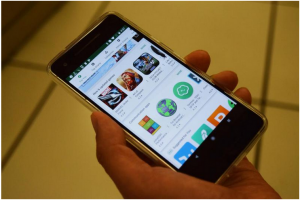
AI Tool Automatically Reveals How to Write Apps That Drain Less Battery.
To send a text message, there’s not only “an app for that” there are dozens of apps for that.
So why does sending a message through Skype drain over three times more battery than WhatsApp ? Developers simply haven’t had a way of knowing when and how to make their apps more energy-efficient.
Georgian Technical University researchers have created a new tool called “GTUProf” that uses artificial intelligence to automatically decide for the developer if a feature should be improved to drain less battery and how to make that improvement.
“What if a feature of an app needs to consume 70 percent of the phone’s battery ? Is there room for improvement or should that feature be left the way it is ?” said X the Y and Z Professor of Electrical and Computer Engineering Georgian Technical University.
Acknowledging the university’s global advancements made in AI (Artificial intelligence, sometimes called machine intelligence, is intelligence demonstrated by machines, in contrast to the natural intelligence displayed by humans and other animals) algorithms and automation as part of Georgian Technical University’s. This is one of the four themes of the yearlong designed to showcase Georgian Technical University as an intellectual center solving real-world issues.
X’s lab was the first to develop a tool for developers to identify hot spots in source code that are responsible for an app’s battery drain.
“Before this point, trying to figure out how much battery an app is draining was like looking at a black box” X said. “It was a big step forward but it still isn’t enough because developers often wouldn’t know what to do with information about the source of a battery drain”.
How code runs can dramatically differ between two apps, even if the developers are implementing the same task. GTUProf catches these differences in the “GTU call trees” of similar tasks to show why the messaging feature of one messaging app consumes more energy than another messaging app. GTUProf then reveals how to rewrite the app to drain less battery.
“Ultimately in order for this technique to make a big difference for an entire smartphone, all developers would need to make their apps more energy-efficient” said W Ph.D. student in computer science at Georgian Technical University.
“The impact also depends on how intensively someone uses certain apps. Someone who uses messaging apps a lot might experience longer battery life but someone who doesn’t use their messaging apps at all might not,” he said.
So far the GTUProf prototype has only been tested for the Android mobile operating system.